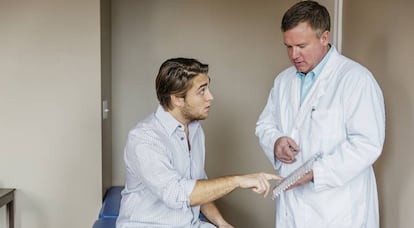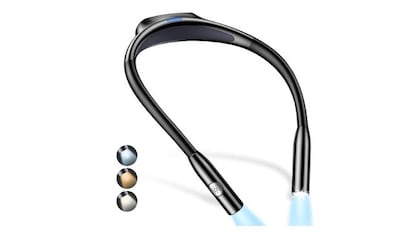A closer look at hormonal therapy for prostate cancer
When used properly, this treatment can make a world of difference for many patients

The use of hormones in treating various health conditions is nothing new. Hormonal therapy has been used by doctors for decades. Sometime hormonal therapy may be used to block specific hormones from causing or worsening a disease. In other situations, hormones may be administered when a person’s body is not producing sufficient amounts for bodily functions to perform normally.
There are many examples of instances when hormonal therapy may be used - to prevent the spread of breast cancer by blocking hormones from reaching breast tissue; to regulate the thyroid; to reduce menopausal symptoms; or to treat infertility or growth disorders. When used properly, hormonal therapy can make a world of difference for many patients.
Prostate cancer and androgens
Another condition hormonal therapy is sometimes relied upon for treating is prostate cancer. Male hormones called androgens can stimulate prostate cancer cells to grow.
Androgens are a group of chemically-related male sex hormones that include testosterone. They can be produced naturally by the body or manufactured synthetically and then administered to an individual. Androgens belong to a group of hormones called steroid hormones of which testosterone is the most abundant androgen in the male body.
Male hormones called androgens can stimulate prostate cancer cells to grow
These hormones function as a fuel for growth and play an important role not only in normal male development but also in the development of prostate cancer. The problem is if a man develops prostate cancer, testosterone can act as a fuel, contributing to the growth and progression of the prostate cancer tumor.
Androgen deprivation therapy for prostate cancer
The testicles produce about 90% to 95% of androgens while the other 5% to 10% are produced by the adrenal glands. One of the most powerful weapons in fighting prostate cancer is a hormonal therapy called androgen deprivation therapy. Developed in the 1940’s based on studies by Dr. Charles Huggins at the University of Chicago, androgen-deprivation therapy can significantly reduce the fuel supply that is feeding malignant growth by targeting testosterone produced by the testicles.
Androgen deprivation therapy reduces the amount of androgens, especially testosterone, and prevents them from reaching cancerous cells in the prostate. Depriving the body of androgens will usually slow the progression of the prostate and of prostate cancer. This type of treatment is not a cure for cancer, but it can help shrink the cells and slow the growth of cancer.
When to consider hormone therapy
Hormone therapy is normally used to fight prostate cancer and considered as a treatment option in the following situations:
- When the cancer has spread or metastasized beyond the prostate
- When the cancer is confined to the prostate but hormone therapy is used to boost the effectiveness of radiation therapy or to shrink the size of a tumor before brachytherapy
- When a man’s prostate specific antigen (PSA) begins to rise some time after initial treatment with surgery or radiation therapy, indicating the cancer may have recurred
There can be side effects from the use of hormone therapy a man may experience which include the following:
- Hot flashes
- Reduced libido
- Erectile dysfunction
- Gynecomastia – breast enlargement
- Osteoporosis
- Weight gain, loss of muscle mass
- Fatigue, anemia
- Changes in blood cholesterol and blood glucose measurements
Hormones may be given when a person’s body is not producing enough for bodily functions to perform normally
A recent study found that the risk of cardiovascular disease is raised among men receiving ADT with localized prostate cancer. Any man who is being considered for ADT needs to be carefully evaluated to see whether the use of ADT is appropriate for them. A review of age, medical history, and other factors can help a doctor determine if the possible risks of ADT will cause greater benefit than harm.
Treating side effects of hormone therapy for prostate cancer
Side effects are generally due to long-term treatment with one of them being loss of bone mass increasing a man’s risk of osteoporosis. There are prescriptions medications that can be given to slow or reverse this loss by increasing bone mineral density. It is also highly recommended that men exercise regularly to help reduce some side effects of hormone therapy including bone loss, muscle loss, weight gain, fatigue, and insulin resistance.
For treating any sexual side effects from hormone therapy, the options are more limited but any man having this side effect should discuss this with his doctor as soon as possible.
Dr. Samadi is a board-certified urologic oncologist trained in open and traditional and laparoscopic surgery and is an expert in robotic prostate surgery. He is chairman of urology, chief of robotic surgery at Lenox Hill Hospital. He is a medical contributor for the Fox News Channel's Medical A-Team. Follow Dr. Samadi on Twitter, Instagram, Pinterest, SamadiMD.com, davidsamadiwiki, davidsamadibio and Facebook
Tu suscripción se está usando en otro dispositivo
¿Quieres añadir otro usuario a tu suscripción?
Si continúas leyendo en este dispositivo, no se podrá leer en el otro.
FlechaTu suscripción se está usando en otro dispositivo y solo puedes acceder a EL PAÍS desde un dispositivo a la vez.
Si quieres compartir tu cuenta, cambia tu suscripción a la modalidad Premium, así podrás añadir otro usuario. Cada uno accederá con su propia cuenta de email, lo que os permitirá personalizar vuestra experiencia en EL PAÍS.
¿Tienes una suscripción de empresa? Accede aquí para contratar más cuentas.
En el caso de no saber quién está usando tu cuenta, te recomendamos cambiar tu contraseña aquí.
Si decides continuar compartiendo tu cuenta, este mensaje se mostrará en tu dispositivo y en el de la otra persona que está usando tu cuenta de forma indefinida, afectando a tu experiencia de lectura. Puedes consultar aquí los términos y condiciones de la suscripción digital.




























































